"If you will stay close to nature, to its simplicity, to the small things hardly noticeable, those things can unexpectedly become great and immeasurable."
― Rainer Maria Rilke
My dearest reader,
I’ve been in the mountains for a week, and it already feels like so much headspace has been cleared up. I even made my peace with three gigantic spiders co-dwelling in my room last night.
Being in nature opens up new sides of myself that surprise me. It does beautiful things to my mood and mental state. I spend my days walking, foraging, writing and drinking copious amounts of ginger tea. Life doesn’t have to be complicated, the mountains tell me.
It’s interesting because the mountains have always evoked a feeling of homecoming and inner expansion. For the first few days, it’s the macro view that grabs my attention and almost overwhelms: the landscapes and silhouettes and fifty shades of greens. Once I’ve settled in and inhaled enough fresh mountain air, it’s all about the micro level: the patterns on the leaves, iridescent beetle wings, the way the light catches the branches at golden hour (or any hour of the day, really)…it becomes about observing and being one with myself in nature.
With much delight, (I’m currently reading Ross Gay’s The Book of Delights in an apple orchard!) I dedicate this 200th weekly newsletter to dear Mother Nature, who heals and guides in the most extraordinary ways. (The Alipore Post was dispatched daily from 2015 to 2018. You can visit the newsletter archive here.)
Dispatch from Himachal
Three photographs from my travels, with words I’m holding close to my heart:
An encounter with Nicholas Roerich
I spent a large part of yesterday wandering through the home, gardens and gallery of Russian artist Nicholas Roerich, who made his home in Naggar, Himachal Pradesh. I’ve always been in awe of his paintings, but to see them up close (those blues, mmmmm) and to see the vistas that inspired the paintings really sparked a whole new level of appreciation for his work. I’m going to sit and paint after sending out this newsletter.
Here’s my favorite painting by him, and a short excerpt from a poem of his I discovered that resonates too much right now:
Tomorrow by Nicholas Roerich (Excerpt)
Only yesterday I knew much
But during the night everything dimmed.
It is true the day was great.
The night was long and dark.
Came the fragrant morning.
It was fresh and wondrous
And illumined by the new sun.
I forgot and was deprived of that
Which I had gathered.
Under the rays of the new sun
All the knowledge melted.
No longer can I distinguish
An enemy from friends.
I do not know when danger
Threatens. I do not know when
Night will come. And the new sun
I shall not be able to face.
All that I once possessed,
But now I am orphaned.
Pity it is that I shall again regain
The needed not earlier than tomorrow.
But today's day is still long.
When will it come—
The tomorrow?
The Timekeeper
Honoured to be one of 25 artists commissioned by Goethe-Institut India to work on a piece that reflects on freedom.
The Timekeeper is a photo poem that captures my evolving relationship with time through the lens of nature and the self. It documents my struggle with time blindness, the inability to sense the passing of time, a symptom of Attention-Deficit Hyperactivity Disorder (ADHD), and is an attempt at reclaiming my personal freedom under the soft guidance of nature.
A few more nature poems I adore
1. Woods by Noelle Oxenhandler
“I wish to grow dumber,
to slip deep into woods that grow blinder
with each step I take,
til the fingers let go of their numbers
and the hands are finally ignorant as paws.
Unable to count the petals,
I will not know who loves me
who loves me not.
Nothing to remember,
nothing to forgive,
I will stumble into the juice of berry, the
shag of bark,
I will be dense and happy as fur.
2. The Swan by Mary Oliver
Did you too see it, drifting, all night, on the black river?
Did you see it in the morning, rising into the silvery air -
An armful of white blossoms,
A perfect commotion of silk and linen as it leaned
into the bondage of its wings; a snowbank, a bank of lilies,
Biting the air with its black beak?
Did you hear it, fluting and whistling
A shrill dark music - like the rain pelting the trees - like a waterfall
Knifing down the black ledges?
And did you see it, finally, just under the clouds -
A white cross Streaming across the sky, its feet
Like black leaves, its wings Like the stretching light of the river?
And did you feel it, in your heart, how it pertained to everything?
And have you too finally figured out what beauty is for?
And have you changed your life?
3. Sabbaths 1998, VII by Wendell Berry (for John Haines)
There is a place you can go
where you are quiet,
a place of water and the light
on the water. Trees are there,
leaves, and the light
on leaves moved by air.
Birds, singing, move
among leaves, in leaf shadow.
After many years you have come
to no thought of these,
but they are themselves
your thoughts. There seems to be
little to say, less and less.
Here they are. Here you are.
Here as though gone.
None of us stays, but in the hush
where each leaf in the speech
of leaves is a sufficient syllable
the passing light finds out
surpassing freedom of its way.
Things to read/listen/see
“We simply need that wild country available to us, even if we never do more than drive to its edge and look in. For it can be a means of reassuring ourselves of our sanity as creatures, a part of the geography of hope.”
-Wallace Stegner on the importance of the wilderness
Meet the creatives taking a rooting interest in learning from nature
Mud-caked feet, berries for breakfast and hiding from hunters: my life as a deer
Sending you virtual wildflowers and the mountain sun on your back!
Love,
Rohini

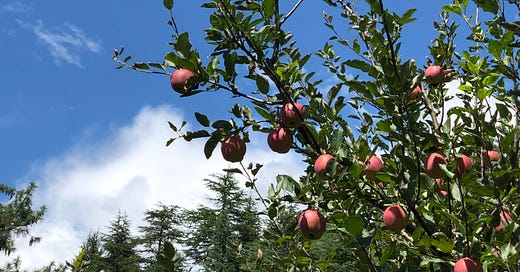


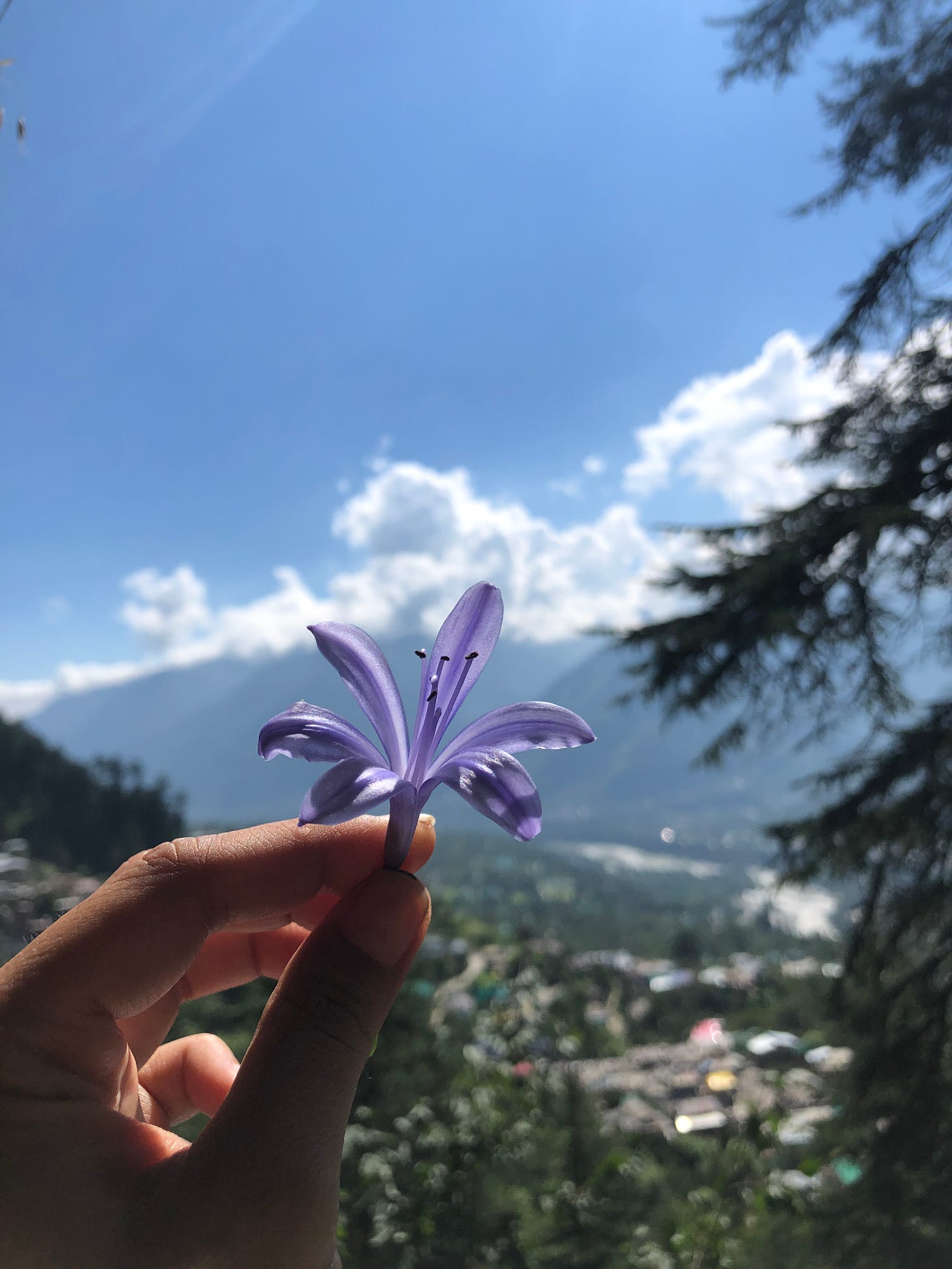
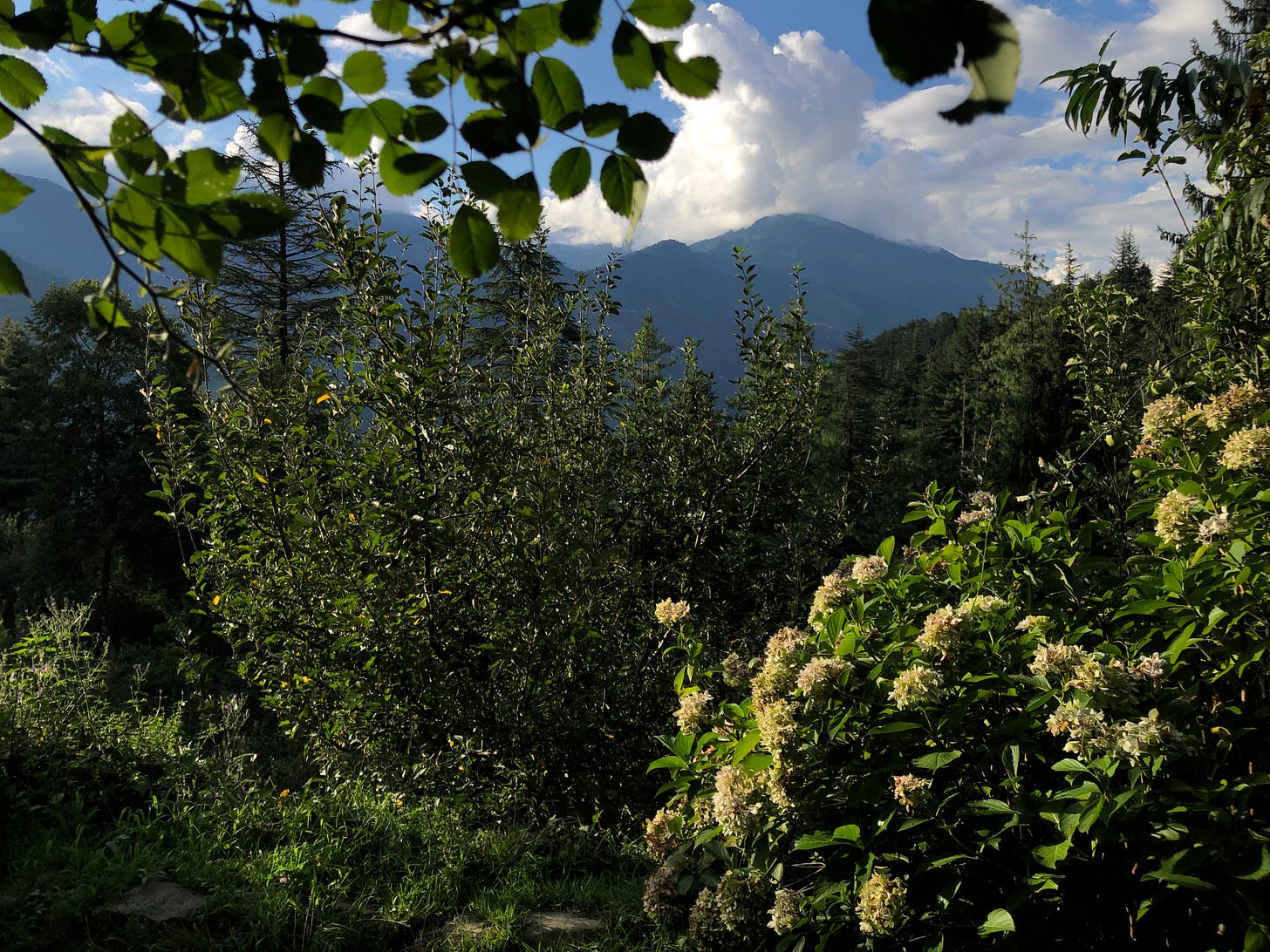
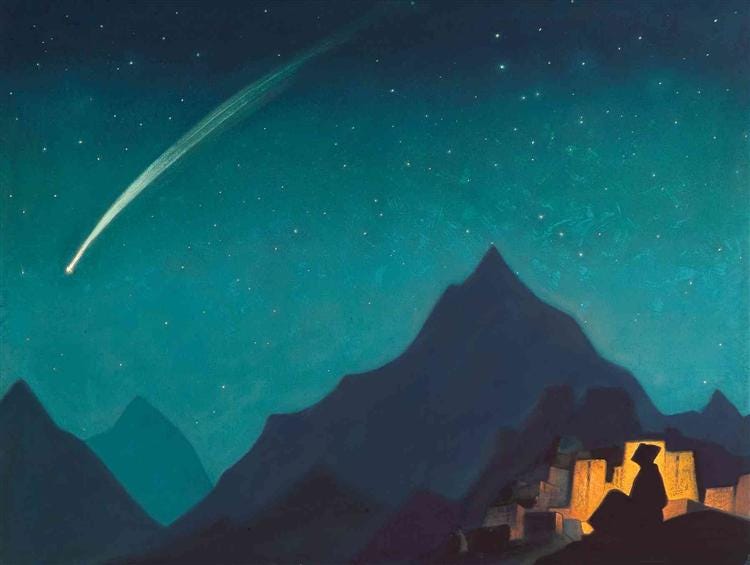
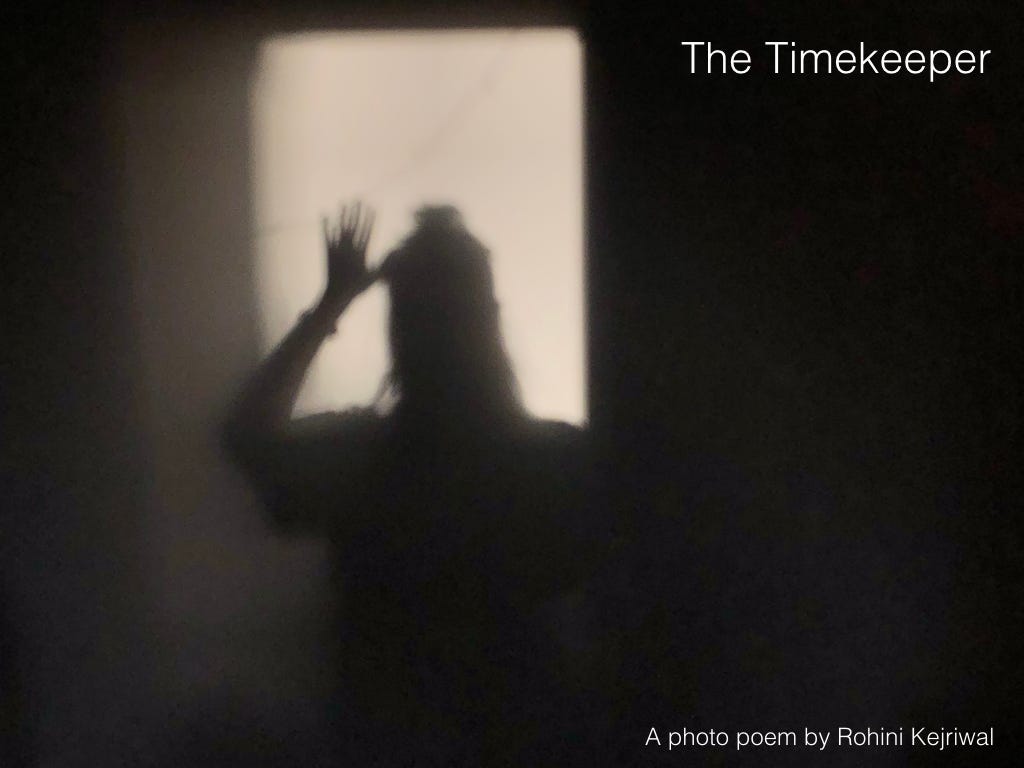
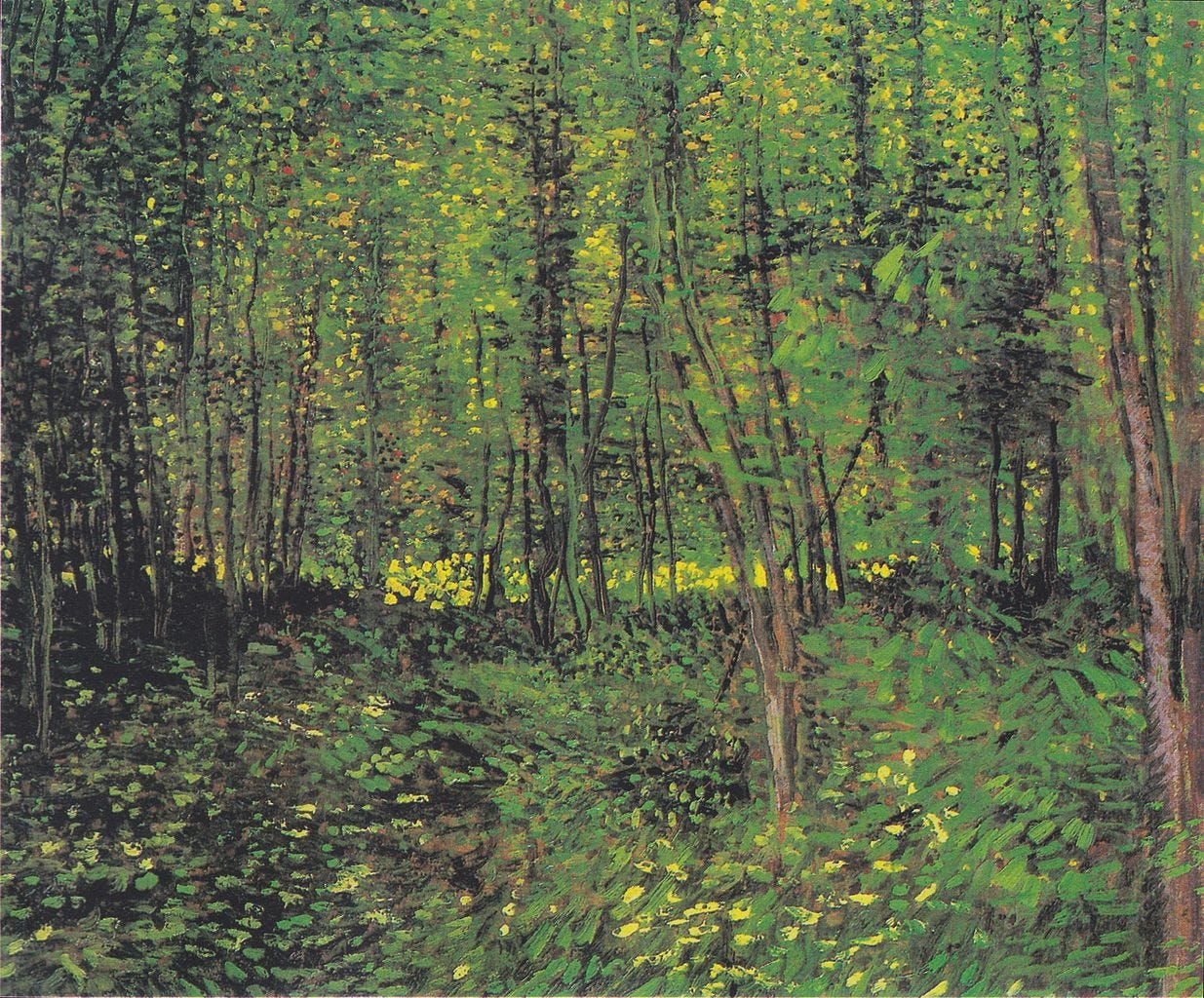
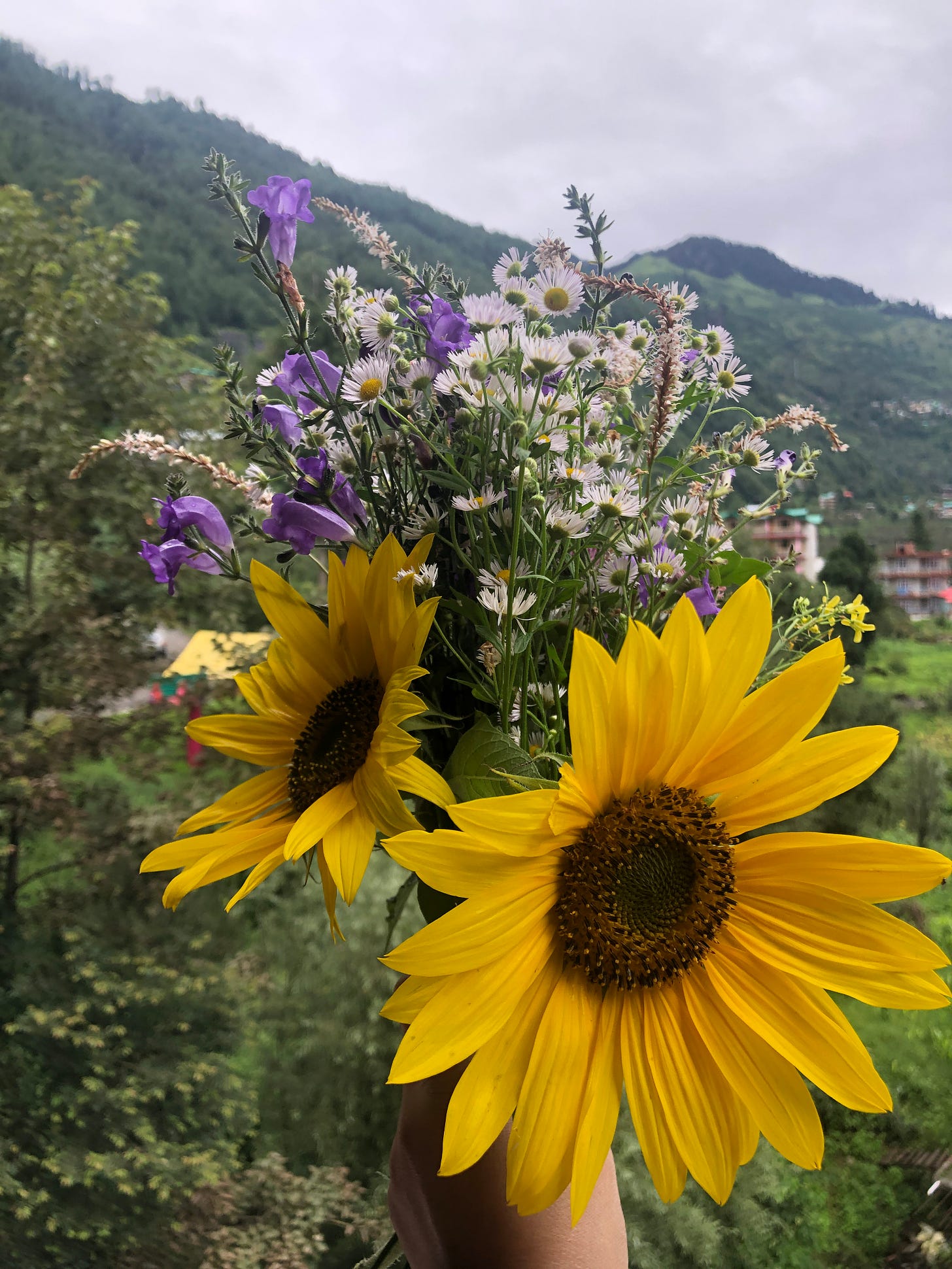
Such beautiful words!!
Beautiful post! 💜